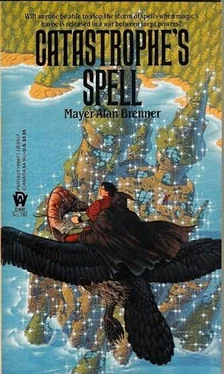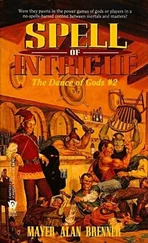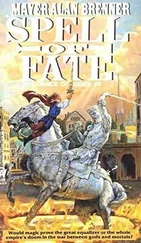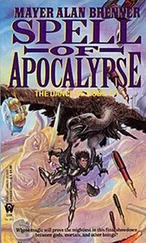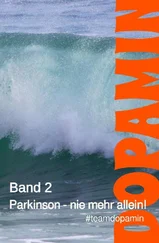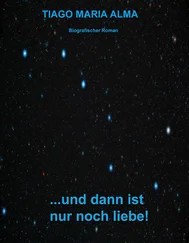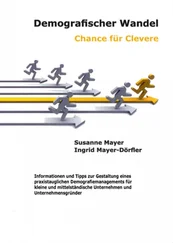“All so you can help out your friend when he’s in a jam?” said Roni. “What else would you do with all that competence?”
“Yeah,” Max said, “right. I guess it’s too late to complain. I just hope this thing isn’t going to involve undead. I’ve had undead up to my neck lately.” He spat out a stray twist of tobacco. “I hate undead.”
Roni and Karlini looked at each other. “Uh, Max?” Karlini said.
Zalzyn Shaa fled east, having left Drest Klaaver just ahead of the squad bearing orders for his arrest on a charge of practicing medicine without a license. Shaa’s skills as a physician were not in question. His license, however, had been issued by the preceding government, which had left power abruptly and without advance notice. Shaa had been relaxing in his lodgings at the back of his consulting room, his feet up on an ottoman, browsing through a recent case digest from the Imperial Conclave of Physicians, when the former Chief of Police had arrived to request his services. The former Chief of Police had made this request by the simple expedient of launching himself through a window from the street, demolishing Shaa’s coat rack, and collapsing onto the rug, bleeding profusely and (Shaa determined quickly) in a fairly terminal fashion. Shaa, estimating the consequences of being associated, in even such a circumstantial manner, with the losing side in a power grab, had quickly liquidated his practice and packed his tools and light valuables on the former Chief of Police’s horse, which he appropriated in lieu of other payment for his services. He rode swiftly through the Bridegroom Gate at the west end of the city, made a wide detour through the northern agricultural district, and headed east for the river.
Pursuit, as Shaa had expected, was not significant, the new government undoubtedly having better ways to squander its resources than bringing down players of no conceivable worth to anyone but themselves, especially those with the bad taste not to present themselves neatly for incarceration. Shaa wasn’t too upset about his strategic departure. He had discovered early in his apprenticeship that medicine, exercised with whole-minded diligence and without a leavening of other projects, offered something less than comprehensive satisfaction. As a result, Shaa’s professional history tended toward bouts of medical practice interspersed with abrupt career shifts. He had been established in Drest Klaaver for almost three years - leavened, it was true, by several significant episodes of mortal peril – but for him this amounted to virtual stagnation. It had been time for a change, he reflected, and a new taste of the open road.
The road was clear, the surrounding ground cultivated and gently rolling, and it was spring to boot. The clear air was full with the smell of young grass, turned earth, and the occasional cow. Small towns and hamlets came and went. Shaa rode patiently, doing calisthenics in the mornings and working out with his rapier at noon, appreciating just how well his shattered tibia and assorted sesamoids had come back together without even the trace of a limp. By the time Roosing Oolvaya and the mist of the river appeared on the horizon, Shaa felt ready for them.
Some of the peasants and townspeople Shaa had spoken to as he neared the city had told him rumors of growing unrest and political instability. The tales hadn’t bothered him much - Roosing Oolvaya was always in a state of unrest, and instability was something of a local custom. Still, as the sprawling district that had overgrown and then surrounded the city walls grew nearer, it became apparent that actual checkpoints had been set up and patrols were on the roads. Smoke from several fires hung in oily nets above the city.
A permanent bazaar of tents and stalls and cut-rate stableyards for caravans lined the shoulders of the major west road, but no structures intruded on the roadbed itself. There was traffic in both directions. Farmers and their carts predominated, but a trickle of refugees headed outward as well. Shaa watched faces as the former Chief of Police’s horse ambled on. Amid the soil-rooted and weather-gouged stolidity of the farmers and the city-honed craftiness of the residents was a mixture of hues, creases, shapes, and statures from places further afield; all human, but not without their human share of diversity. The cosmopolitan air was certainly not unusual in a district given over to itinerants and traders, quick deals and quick fights, but the typically boisterous and surging character of the place was subdued. A general feeling of wariness lay atop everyone’s features.
Well, Shaa thought, that is fine with me. Whenever something broke, one kind of person left (or hid in the cellar) and another kind of person showed up. He had been both, at one time or another. At the moment he felt like the kind that showed up. Of course, he was out of practice.
The western gate drew up and the militia on duty waved him through. Shaa found a stable a short distance inside and left off the horse, shouldering the saddlebags, and walked on, checking his bearings and reassuring himself that he could still get around in the city. There had been no recent floods, so there was little danger of civic renewal substantially changing things. The next block - ah. He turned into an alley. The alley, scarcely wide enough for a large person, narrowed further, its protruding second-story balconies drooping to within head-cracking range, then wound to the right and suddenly terminated after an abrupt twist to the left again at a closet-sized cul-de-sac surrounded by blank three-story walls. Several ferns protruded from the dusty ground. Shaa parted the leaves, revealing a grating. He wrestled the grating to one side and stretched an arm down into the shaft, feeling along the facing stones. The first stone was solid, as was the second, and the third – but then the third stone tingled suddenly against his hand and wobbled under his touch. Excellent, it was still keyed to him. He pulled the now-loose stone free, exposing a recess in the wall. Ah, Shaa thought again. Quite satisfying.
Rummaging through the saddlebags, Shaa selected a sack of supplies and a pile of assorted implements, which he secreted about his person. The saddlebags fit neatly into the gap in the grating shaft. He slid the stone into its slot and the grating into its frame and started back along the alley. Two twists before the exit to the street, Shaa heard a muffled thud from around the bend in front of him, as that of a head encountering a low-hanging balcony, followed by a whispered but scathing curse. Letting his cloak fall back, Shaa reached across his body and grasped the hilt of the rapier on his hip. A young man in a red and yellow tunic stepped around the corner, rubbing his forehead with one hand and waving a long blade with the other.
“Yes?” Shaa said.
The man looked up, startled, his eyes snapped to Shaa’s shoulder, where Shaa was now not carrying his saddlebags, his eyes narrowed as a look of avarice appeared on the face around them, and he turned the point of his blade toward Shaa. Shaa brought his own point up as he lunged. Shaa visualized his blade puncturing the right ventricle and severing the descending aorta, but he had decided to be lenient. He was, after all, a physician, and that did involve certain oaths and a particular underlying philosophy, no matter that they might prove inconvenient from time to time. The man beat ineffectually as Shaa’s sword punched through his right biceps and neatly withdrew. The bravo staggered back against the wall, his own blade dropping from his fingers and his other hand clasping his wound, and sank slowly to the ground. His mouth made an open astonished circle. Shaa stepped over his legs and continued toward the exit.
Читать дальше
